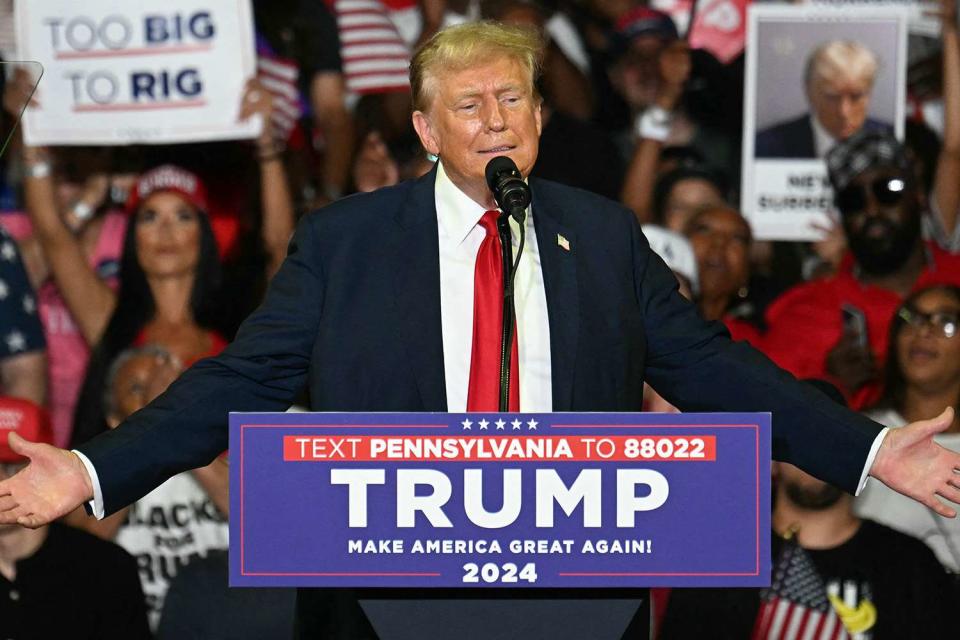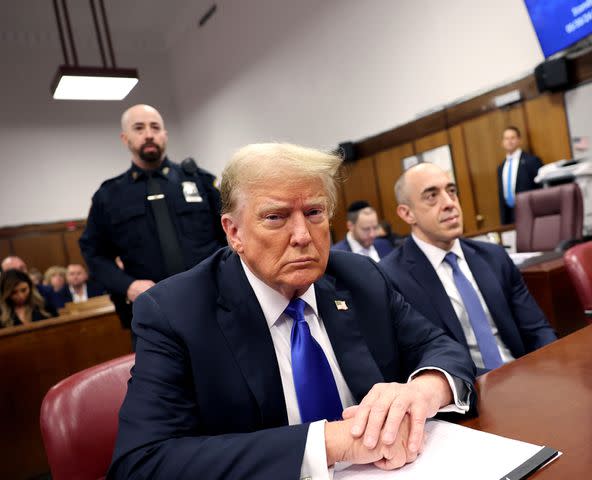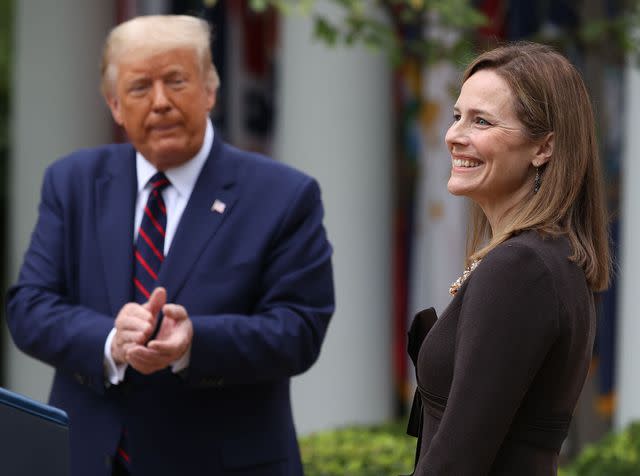Donald Trump's Sentencing Postponed Until September as New York Judge Weighs New Supreme Court Guidelines
New York Judge Juan Merchan moved the sentencing hearing from July 11 to Sept. 18 while he considers Trump's request to throw out 34 felony convictions

JIM WATSON/AFP via Getty
Donald Trump speaks at a Philadelphia rally on June 22, 2024Donald Trump received more good news on Tuesday, July 2, when the judge in his Manhattan criminal case agreed to delay his sentencing hearing, which was originally scheduled for July 11.
In a filing, New York Judge Juan Merchan said that the court will reconvene on Sept. 18 "for the imposition of sentence, if such is still necessary."
Related: Donald Trump Seeks to Overturn New York Conviction After Supreme Court's Immunity Ruling
The disruption in Trump's case comes as the former president seeks to overturn his 34 felony convictions, which were handed down by a Manhattan jury on May 30. He was found guilty of falsifying business records to conceal a scheme to corrupt the 2016 presidential election, which he won over Hillary Clinton.

Michael M. Santiago/Getty
Donald Trump prepares for a Manhattan jury to deliver his verdict on 34 felony counts on May 30, 2024Trump's legal team sent a letter to Judge Merchan on Monday, July 1, asserting that a new Supreme Court ruling on presidential immunity should nullify his convictions. They asked that Trump's sentencing be delayed while the validity of his trial is considered.
Earlier on July 1, the Supreme Court released a landmark ruling, which stated that Trump and other U.S. presidents have absolute immunity from prosecution over "official" acts taken during their White House tenure.
"The President enjoys no immunity for his unofficial acts, and not everything the President does is official," the Supreme Court said in its decision. "But under our system of separated powers, the President may not be prosecuted for exercising his core constitutional powers, and he is entitled to at least presumptive immunity from prosecution for his official acts."
The court also said that official acts cannot be used against presidents as evidence for other crimes, which formed the basis for Trump's complaint.
Though the Manhattan criminal trial centered around Trump's private finances as a political candidate — which are not protected by presidential immunity — Trump's defense team claims that prosecutors relied on some official acts to convince the jury that he was guilty.

On July 2, the Manhattan District Attorney's Office said that — while it disagrees with Trump's argument that his convictions should be thrown out — it will not challenge the defense team's request to postpone his sentence.
Judge Merchan said that he will reveal his decision on whether to toss the verdict on Sept. 6.
For more People news, make sure to sign up for our newsletter!
Read the original article on People.

 Yahoo News
Yahoo News 
